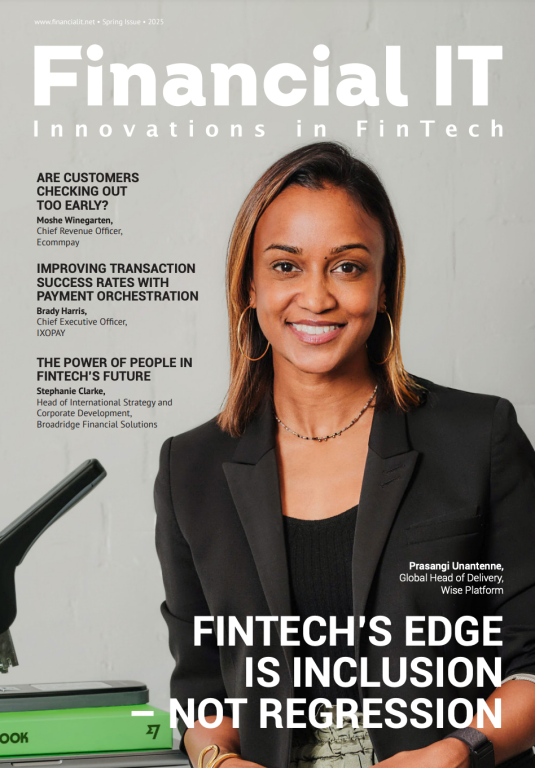Published
- 02:00 am
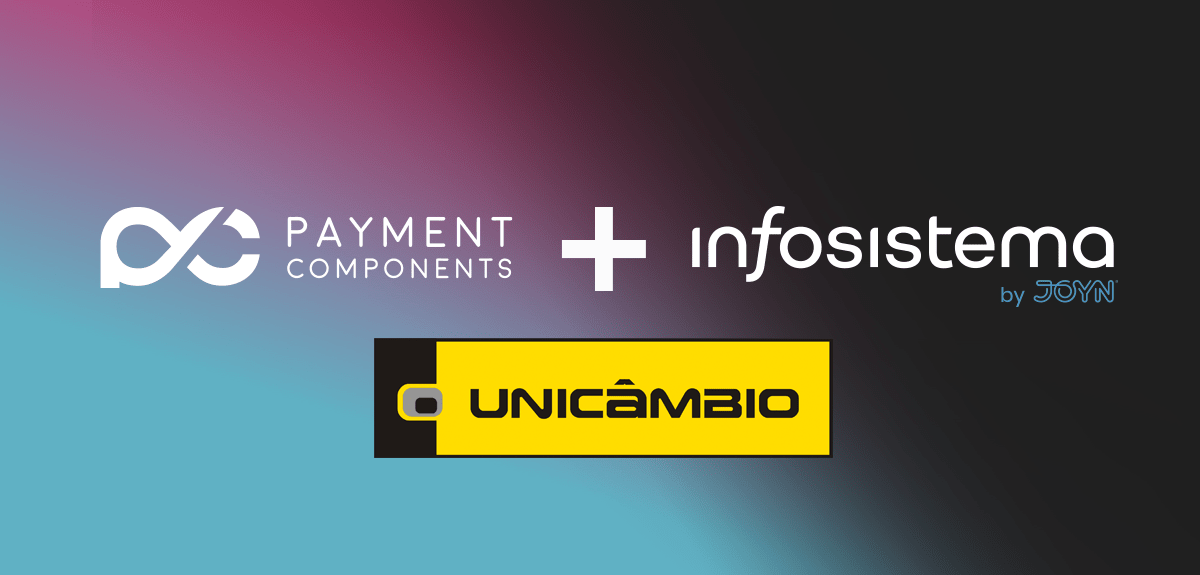
PaymentComponents Ltd, a pioneer in financial technology, in collaboration with Infosistema, a leader in technology and business consulting, proudly announces its instrumental role in the development of Unicâmbio's new digital wallet. This innovative solution is powered by the robust and versatile aplonAPI Open Banking platform.
Unicâmbio, a renowned payment institution, has taken a significant leap forward in digital financial services. With the assistance of PaymentComponents and Infosistema, Unicâmbio's digital wallet now offers users a seamless experience for depositing funds, viewing transactions, sending money, and more. This enhancement marks a pivotal step in Unicâmbio's commitment to providing cutting-edge digital services to its customers.
PaymentComponents has been at the forefront of financial innovation, and their aplonAPI™ is a testament to their expertise in the field. "Our partnership with Infosistema to build Unicâmbio's digital wallet demonstrates our dedication to advancing the FinTech landscape. We are thrilled to see how our aplonAPI™ has been leveraged to create such a dynamic and user-centric digital wallet," commented a representative from PaymentComponents Ltd.
Infosistema, known for its technical prowess and business acumen, played a critical role in the project. "Working with PaymentComponents and Unicâmbio has been a rewarding experience. This project showcases our ability to deliver complex technological solutions that drive the financial sector forward," remarked a spokesperson from Infosistema.
Related News
- 03:00 am
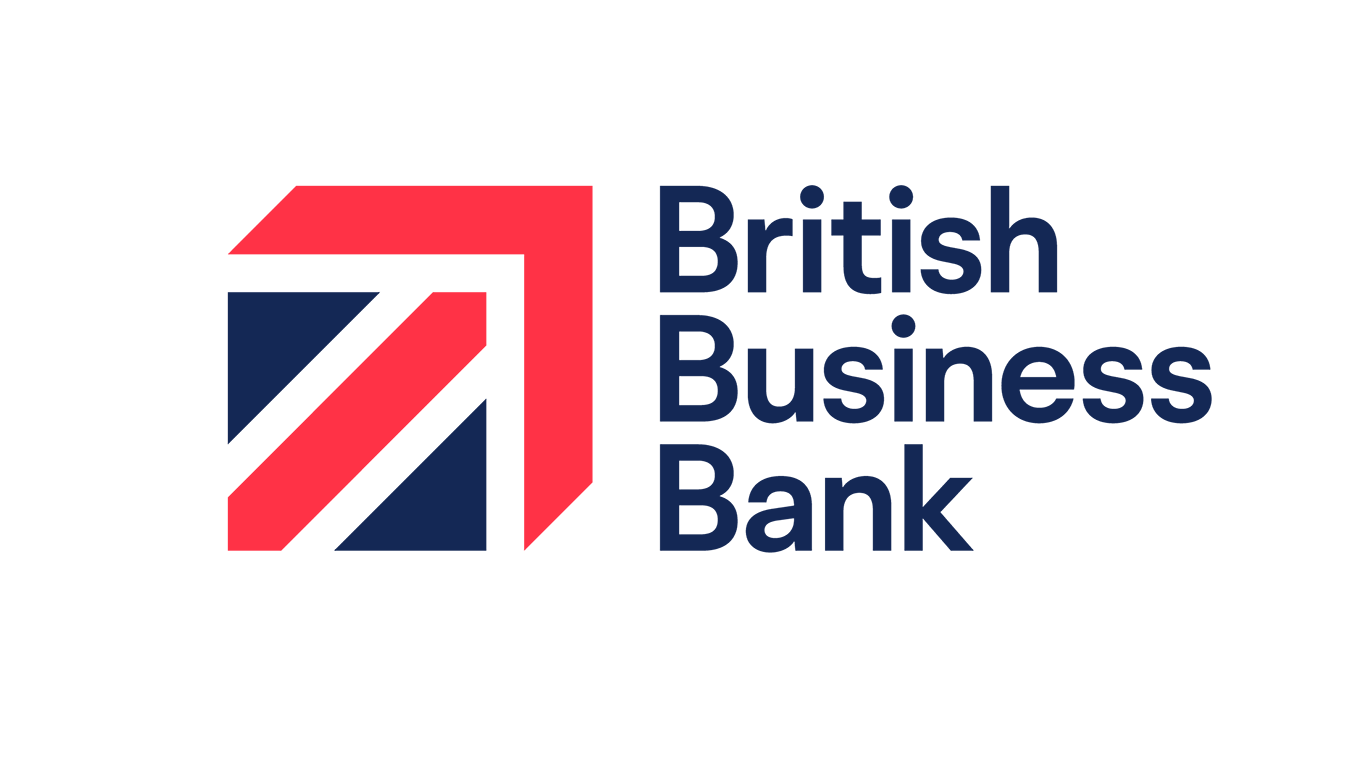
The British Business Bank has launched an asset-based lending variant of the Recovery Loan Scheme.
The asset-based lending variant aims to broaden the support available for small businesses in the UK to access finance through the Recovery Loan Scheme, making use of a broad range of business assets.
The new Recovery Loan Scheme asset-based lending variant joins the existing term loan, revolving credit facility, invoice finance and asset finance variants, designed to support access to finance for UK businesses as they look to invest and grow.
The Bank’s Guarantee and Wholesale division worked closely with UK Finance and asset-based lenders to develop this variant and the innovation it will bring.
Asset-based lending will allow lenders to provide loans secured by assets such as inventory, accounts receivable, equipment, or other property owned by the borrower. Recovery Loan Scheme asset-based lending will be delivered by established asset-based lenders and the British Business Bank welcomes asset-based lenders to consider applying for accreditation.
With the support of Recovery Loan Scheme asset-based lending, lenders can provide additional finance, above what they can support on a commercial basis.
By 30 September 2023, businesses have drawn more than 20,000 facilities, totaling £4.3bn, through the first two iterations of the Recovery Loan Scheme. The third iteration of the Recovery Loan Scheme was launched in August 2022 and continues to support access to finance for UK businesses.
Matt Davies, Director, Commercial Finance at UK Finance said: “The asset-based lending variant is an important addition to the Recovery Loan Scheme, and UK Finance and its members have been pleased to work with the British Business Bank on developing it.
“Financial services firms want to help businesses overcome challenges and realise their potential. With the asset-based lending variant now sitting alongside invoice finance and other versions of the Recovery Loan Scheme, lenders are providing a range of options to support businesses with their working capital and can help them unlock finance for growth and investment.”
Reinald de Monchy, Managing Director, Guarantee and Wholesale Solutions, British Business Bank, said: “We wanted to diversify the support we provide for smaller businesses in the UK through the Recovery Loan Scheme, and we’re pleased to have made good on this promise with the launch of the asset-based lending variant. This innovation will unlock additional finance for UK smaller businesses, and we welcome any established asset-based lender to apply for this new product.”
Related News
- 08:00 am
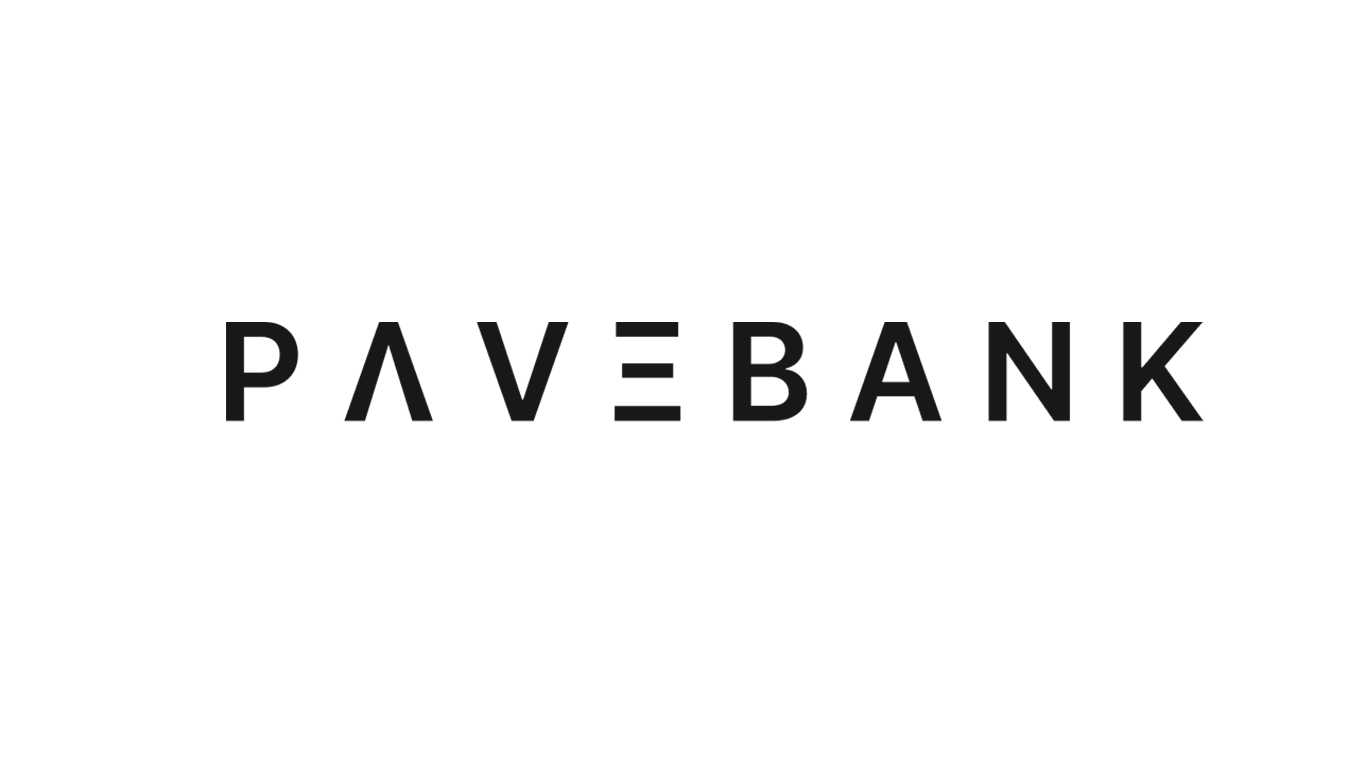
Banks have vastly evolved over the last 50 years but the underlying global financial system has remained largely the same; obscure and inefficient. The advent of regulated digital assets and programmable money, along with its adoption by central banks around the world offers a root and branch transformation of how value will move around the world. As this takes shape, launching today Pave Bank is the world's first programmable bank giving businesses access to these new technologies so they can bank more efficiently and access the new economy.
Pave Bank comes out of stealth with an approved digital banking licens from Georgia and a US$5.2M seed funding round led by 468 Capital with participation from Quona Capital, FT Partners, BR Capital, w3.fund, Daedalus, and angel investors.
Pave Bank is the world’s first fully regulated commercial bank where clients can not only get the best in class business banking products (such as multi-currency operating accounts, global payment connectivity, and treasury management solutions) but will also have access to multi-asset custody, virtual IBANs, safeguarding accounts and PaveNet, which is a multi-asset, always instant and always on network of Pave Bank customers.
Pave Bank promises an ironclad level of trust and confidence in all their products. In honouring this commitment they are a full reserve bank, which means that all deposits and funds held with the bank are always there, never lent out, and never invested.
Salim Dhanani, Co-Founder & CEO of Pave Bank commented: “We have set out to address limitations of today’s financial system that lacks transparency, remains restricted to certain time windows (clearing and settlement, for example) and is riddled with intermediaries. All of this increases costs, management complexity and also limits the products and services which can be accessed by the majority of businesses and especially, for those operating globally. In parallel, we have seen a number of innovative products that have been created in the digital asset space, but sometimes with a lack of regulation and safety for users. We are championing a new path where Pave Bank customers will get access to the financial products that they are used to, but also a range of digital asset enabled products which will help them bank more efficiently within a regulated and secure environment.”
As programmability in financial services takes off, Pave Bank offers a fresh, secure and regulated platform for businesses to transact in stablecoins, Central Bank Digital Currencies (CBDCs), and tokenized Real World Assets (RWAs). The Pave Bank team likens this level of disruption in financial services to the way the smartphone disrupted the phone market. Salim Dhanani added: “Programmable money and real-world asset tokenization are creating a seismic shift in how the financial system will operate and what a future financial institution will look like. There are two major trends that led us to create Pave Bank. Firstly, blockchain is being integrated into the traditional financial system - with stablecoins, CBDCs included, and tokenized RWAs. We are seeing the financial system be built on new operating languages for the first time in over fifty years. Secondly, regulation is here, it’s here to stay, and for the better. We are seeing this narrative evolve around the world - in Singapore, Hong Kong, Georgia, UAE, UK, across the EU and the green shoots in the USA, amongst many others. As a fully regulated digital bank with a proprietary technology stack, we are right at the swell of the programmable financial system wave.”
The integration of blockchain technology to the regulated financial markets mirrors what the internet was to information and it will transform the financial system. Blockchain projects like Onyx by JP Morgan and the new Global Layer One by the Monetary Authority of Singapore are beginning to drive meaningful change. Salim Dhanani added: “Programmable banking represents the next stage in financial evolution. In the end, businesses care more about the value that is being brought to them with these technologies and less about the technologies themselves. With more businesses thinking and operating globally, the solutions that can be built with programmable money promise to transform banking, treasury, credit products, along with opening up a host of new products and services.”
Pave Bank has started the regulatory journey with a digital commercial banking licence in Georgia and plans to continue to build its regulatory infrastructure globally. Georgia is strategically positioned between Europe, the Middle East and Asia, with close ties to the European Union. Its robust and transparent regulatory architecture has attracted a large number of businesses as it seeks to become a financial services hub in the region.
Pave Bank was founded by established banking executives turned fintech operators Salim Dhanani (CEO), Simon Vans-Colina (CTO) and Dmitry Bocharov (COO). Salim was at the World Bank before moving to Carta Worldwide (acquired by Nasdaq listed MOGO) and then co-founded fintech lender and payments business BigPay in Southeast Asia. Simon was at Citibank and Vocalink before moving to set up Starling Bank. He left with Tom Blomfield and Paul Rippon to build Monzo as a member of the founding team. Dmitry was a member of the management team at Ferratum, a DAX-listed bank operating across Europe. Nine years ago, he moved to Vietnam and assumed the role of Chief Digital Officer at VP Bank, where he successfully led a digital transformation, elevating the bank from being ranked among the bottom five to becoming one of the top commercial banks in the country.
Guilherme Steinbruch, Partner at 468 Capital commented: “Pave Bank is offering the world a glimpse into what we believe to be the future of banking and financial services. Large banks are riddled with legacy technology stacks and don't have a unified approach between traditional finance and regulated digital assets. Ultimately, we are witnessing a major shift in banking and Pave Bank stands out by enabling a whole range of products and services that can be brought to businesses globally.”
Steve McLaughlin, Founder & CEO at Financial Technology Partners commented: “Having observed innovative companies in the financial services industry for over two decades, Pave Bank is a prime example of a transformative company. Our ongoing partnership with visionary repeat founders like Salim is a testament to our dedication in guiding and supporting their strategic journey. In terms of leadership, product vision and commitment to customer value, we see Pave Bank as leaders in the space. We take pride in having supported their journey so far and eagerly anticipate the continuation of our partnership through their upcoming fundraising endeavors.”
The Pave Bank team believes that as the traditional financial world transforms with digital assets and the decentralised space transforms with regulation, regulated financial institutions will need to adapt to continue offering the most competitive products and services to their clients. This shift is not a user experience shift, it is a change of the very nature of money and value, for which Pave Bank is built.
FT Partners was the exclusive financial and strategic advisor to Pave Bank on this transaction.
Related News
- 08:00 am

VNX, a renowned European player of real-world asset tokenization, has marked a new milestone with the launch of its stablecoins, VNX Euro (VEUR), VNX Swiss Franc (VCHF) and tokenized gold VNX Gold (VNXAU) on the Solana blockchain. The move emphasizes VNX's commitment to broadening the utility and accessibility of stable assets within the digital ecosystem.
VNX diversifies the stable asset landscape in the crypto market, presenting alternatives for users seeking stability and flexibility beyond USD-pegged stablecoins. By merging the reliability and familiarity of European fiat currencies as well as physical gold with the efficiency and convenience of cryptocurrency transactions, VNX delivers a compelling and resilient option for managing digital assets in the evolving financial landscape.
The integration of VNX's stable assets on Solana unlocks a spectrum of potential applications, offering users faster transactions, lower fees, and enhanced DeFi interoperability. This expansion provides an avenue for users to effectively manage investment portfolios, engage in cross-border transactions, and seamlessly integrate stable assets into an array of DeFi protocols.
Alexander Tkachenko, CEO and Founder of VNX commented, "Our commitment to building on Solana is a testament to our unwavering dedication to providing efficient and secure financial solutions across multiple blockchain networks."
In addition to the token launch on Solana, VCHF, and VEUR were added to liquidity pools with MSOL, bSOL, and JitoSOL on Orca, an Automated Market Maker (AMM) based decentralized exchange (DEX) built on top of the Solana blockchain. This creates an avenue for users to engage in seamless and efficient transactions with VNX tokens. The integration of VNX's stable assets into Orca's liquidity pools marks a step forward in expanding the reach and utility of VNX stablecoins.
Nathan - Head of BD, Orca expressed the positive impact of adding stablecoins to the DeFi space, stating, "VNX's offering brings exciting new assets online, giving users the ability to access new markets that were previously unavailable on-chain. Deployment on Orca enables trading these assets with the tight spreads and near instant settlement that are only possible on Solana."
Additionally, VNX tokens, including VEUR, VCHF, and VNXAU on Solana are now accessible on centralized exchanges such as Emirex, on the VNX platform further expanding user accessibility and enabling wider token circulation within the crypto space.
VNX Commodities AG is registered with the Liechtenstein Financial Market Authority (FMA) under the Blockchain Act. VNX publishes independent auditors’ reports that confirm the value of reserves supporting the tokens regularly as well as useful information about tokens in the VNX Transparency section on its official website.
Related News
- 03:00 am
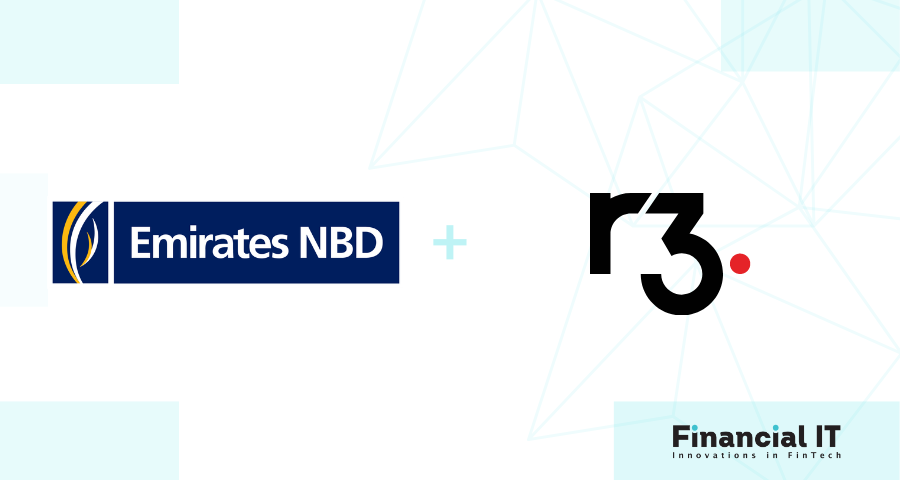
Emirates NBD, a leading banking group in the MENAT (Middle East, North Africa, and Türkiye) region, has announced leading enterprise distributed ledger technology and services firm R3 as a key council member of the Digital Asset Lab. R3 will join PwC, a professional services firm, and Fireblocks, a digital asset transfer and direct custody technology platform, as the founding council members of the Lab.
R3’s Corda is the world’s leading distributed application and tokenization platform powering regulated digital finance. Only Corda offers a permissioned ledger, asset modeling capabilities, and a multi-party workflow engine in one interoperable and scalable distributed platform.
The expansion demonstrates Emirates NBD’s continuing commitment to spearhead innovation in the financial sector with the help of cutting-edge solutions. With the new addition to the Digital Asset Lab, Emirates NBD is strengthening the new collaborative ecosystem by leveraging R3’s regulated markets expertise to drive transformative advancements in digital assets, currencies, and banking services. The new membership marks a pivotal step in Emirates NBD’s journey towards redefining the future of banking, using R3’s technology to enhance security, efficiency, and customer-centricity.
Abdulla Qassem, Group Chief Operating Officer at Emirates NBD, commented: “We are pleased to welcome R3, a technology pioneer, to the Digital Asset Lab. The platform is significant to Emirates NBD’s innovation strategy as it serves as a testing ground for new financial technologies and digital assets. As a digital banking leader, the Lab demonstrates Emirates NBD’s commitment to stay at the forefront of innovation in a rapidly evolving financial landscape.”
“Digital Asset Lab is set to significantly enhance our understanding of current and emerging technologies, along with their associated risks and benefits. This valuable insight will enable us to adapt and integrate these advancements into our services effectively and securely.”
David Rutter, Chief Executive Officer at R3, said: “R3 is delighted to be partnering with Emirates NBD by participating in its new Digital Asset Lab. The region continues to go from strength to strength in global financial innovation, and the creation of the Lab marks another significant milestone in the growth of its burgeoning FinTech sector.”
“As Lab partners, we are excited to support Emirates NBD in the development and testing of transformative technologies. Our efforts will contribute to vital initiatives centered around asset tokenization, distributed ledger technology, and digital transformation in regulated financial markets.”
The Digital Asset Lab was announced in May 2023 at the Dubai FinTech Summit, to enable and accelerate digital asset and financial services innovation in the UAE. As a national banking champion in the UAE, Emirates NBD is establishing a robust platform with industry experts for the development of innovative ideas in financial services using digital assets and its underlying technologies.
The Lab focuses purely on digital assets and how underlying technologies can be leveraged to enable customers to effectively manage their financial services requirements in the evolving and dynamic environment of digital assets.
Related News
- 03:00 am
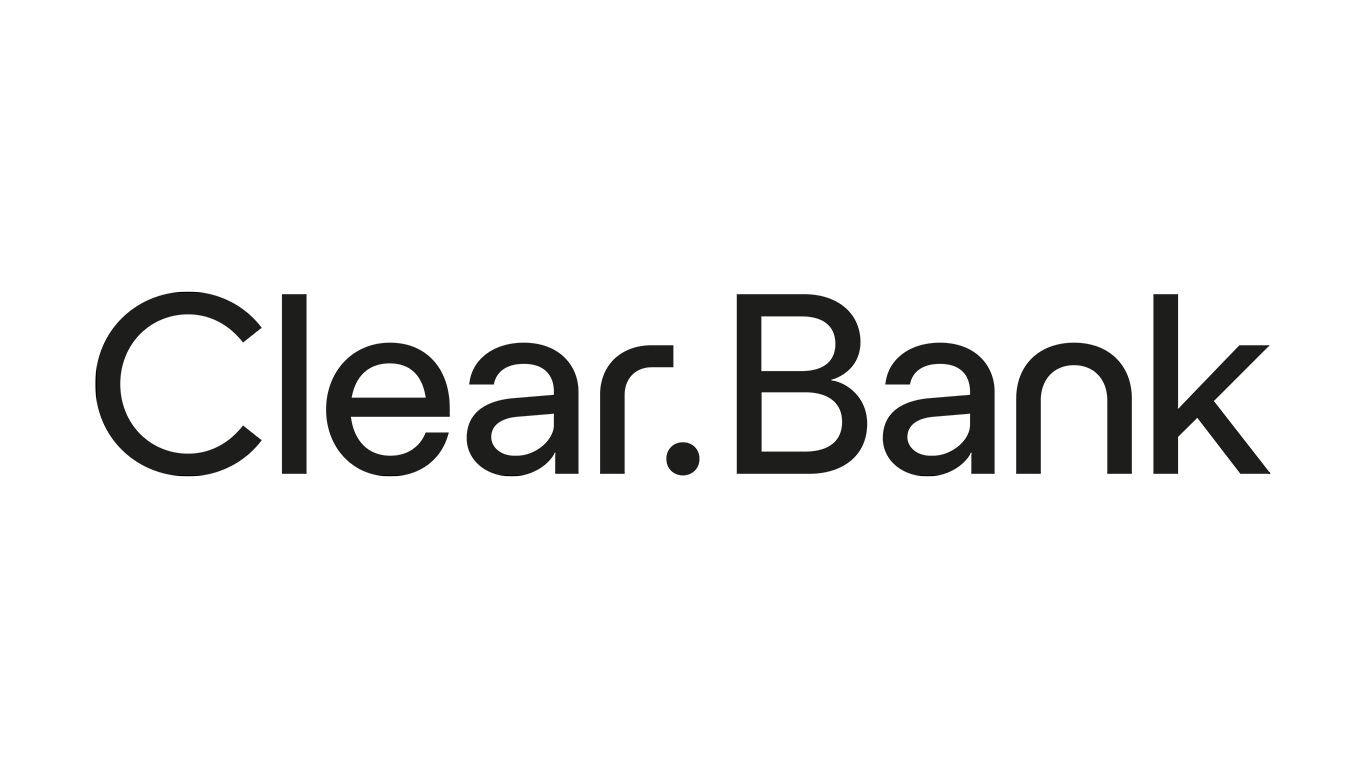
ClearBank, the enabler of real-time clearing and embedded banking for financial institutions, today announced the appointment of Megan Cooper (nee Caywood) as Chief Product Officer.
Cooper joins ClearBank with over a decade of experience in fintech, including Chief Product Officer and Head of Digital Strategy at Barclays UK Business, and Chief Platform Officer at Starling Bank. She is also a board member of UK Finance Digital, Technology, Cyber Products and Services team, and was named in Forbes 30 Under 30 in 2018.
As Chief Product Officer, Cooper will lead the bank’s product strategy, creating and executing its roadmap at a critical time for ClearBank as it expands into new markets. She will work closely with the bank’s client management, innovation, engineering, and risk and compliance teams to develop and maintain the bank’s capabilities, aligning them with customer needs.
“ClearBank’s success is built on understanding its customers’ needs, and that only comes from listening and using that insight to deliver great products,” said Megan Cooper, Group and UK Chief Product Officer at ClearBank. “I look forward to working with ClearBank and continuing this approach, creating services that will meet customer needs both in the UK, Europe and the US.”
“Megan brings a wealth of fintech experience to the role, having worked with both startups and established brands. She joins at a particularly exciting time for ClearBank as the business plans expansion—not just of its products and services, but also into international markets,” said Spiros Theodossiou, Group Chief Product and Technology Officer at ClearBank. “We’re delighted to welcome Megan to the team as we build on our success and continue our customer-focused approach as we expand our capabilities and reach.”
Related News
- 09:00 am

Mollie, today unveiled the UK findings from its latest European E-commerce Report. The report highlights how spending and payment behavior has shifted in light of growing inflation and the cost of living crisis. Despite economic challenges, nearly half of consumers believe the economic situation will improve in the short term and expect to spend more in the next year.
Unsurprisingly, consumers are increasingly drawn to discounted items, with 38% indicating a higher likelihood of purchasing discounted products compared to a year ago. Additionally, 47% of UK consumers are more inclined to make online purchases if they are discounted.
Wider shopping habits are also shifting with only 1% of UK shoppers saying they haven’t changed their buying behaviour in the last year. Social media, in particular, is playing a starring role, with 21% of UK shoppers reporting being persuaded by content creators to make an online purchase - the highest in Europe. It also revealed that the influence of social media is significant, with only 1% of UK shoppers not using social platforms for product research.
UK consumers shrug off economic pressures
· The economy will worsen: The report discovered that nearly two-thirds (61%) of UK consumers report feeling negative about the country’s current economic situation. However, 46% believe the economic situation will improve in the next 6-12 months.
· Spending will increase online: And there’s even more good news in how UK shoppers will spend, with almost half (49%) saying they plan to spend more online in the next 12 months.
· Increased usage of BNPL: "Buy now, pay later" (BNPL) is on the rise, with 64% of UK users reporting an increase in their BNPL usage over the past 12 months.
The power of social influence
· Social media research: For UK shoppers, YouTube (44%) is the most popular platform to research a product before purchasing. Meta platforms Facebook (43%) and Instagram (38%) rank 2nd and 3rd respectively. 22% of consumers report using TikTok for product research.
· Utilising social media buying features: More and more social media platforms are integrating “buy in-app” features. 41% of UK consumers have purchased products from Facebook, 32% from YouTube, and 30% have purchased from Instagram.
Key capabilities retailers need to offer:
· Free shipping is essential: While 41% of UK shoppers report free shipping being an influential factor, a further 52% reported high shipping fees being a reason to abandon a purchase, the highest in the UK, compared to other regions surveyed.
· Communicating with consumers: Almost half (47%) of UK consumers report discount codes being offered after leaving the site is a contributing factor to completing purchases. Overall, email appears to be a strong platform for communications, with 39% saying receiving an email from a brand they like could influence a purchase.
· Feeling secure: Security is a crucial concern, as 46% of consumers abandon carts due to security worries and 33% due to concerns about third-party data sharing.
How to delight UK shoppers:
· Provide diverse payment methods: A staggering 94% of UK consumers emphasize the importance of retailers offering their preferred payment methods, with 58% considering it "very important”.
· Streamline the checkout experience: Whether you’re checking out as a guest or member, for 40% of UK consumers, streamlining the checkout process is key to driving conversion (compared to a European average of 29%).
"In an era of economic uncertainty, this research underscores the resilience and adaptability of UK consumers, who, despite concerns about the economic climate, are primed to increase their online spending. It's a clear signal for e-commerce businesses to prioritize payment diversity and optimize the checkout experience,” said Mia Hunter, UK MD & Director of International Expansion at Mollie. “The surge in Buy Now, Pay Later usage and the dominance of social media platforms for product research underscore the need for a comprehensive and flexible approach in the e-commerce space. Navigating the dynamic UK e-commerce landscape calls for a versatile approach that cannot be ignored any longer by merchants.”
This report is based on a survey of 5,000 e-commerce shoppers across Belgium, France, Germany, Netherlands, and the UK. This survey was commissioned by Mollie and was conducted by independent research company Coleman Parkes.
Mollie’s European E-commerce Report, which contains a full analysis and further insights, can be downloaded here.
Related News
- 08:00 am

Regtech Salv, with its suite of tools to help banks and service companies fight financial crime, has raised €3.9m in new funding, bringing its capital raised this year to €7.9m and total funding to €12.1m. The round includes investments from new and existing investors and is a testament to a strong year for the Estonian-based regtech, which is on track to double its revenue in 2023 compared to 2022.
The investment will fuel Salv's expansion in the UK, a market currently experiencing a sharp increase in Authorised Push Payment (APP) fraud, where criminals use social engineering attacks involving impersonation to trick consumers or businesses into transferring money to their accounts. In 2022, the UK lost over £1.2 billion to fraud, with APP fraud accounting for 40% of those losses. According to data from UK Finance – despite a marginal 1% drop in losses to APP fraud in the first half of 2023 – the volume of cases surged by 22% this year. Smaller banks and payment firms, often with less robust fraud detection and prevention systems, are particularly vulnerable.
Salv's suite of products gives players big and small the necessary tools to detect, prevent, and stop fraud, money laundering, and terrorist financing. Salv is used by 53 financial institutions across 12 countries. Providers, including LHV Bank, Swedbank, and SEB, rely on Salv for customer and sanctions screening, real-time inbound and outbound transaction monitoring, and risk scoring.
In response to raising APP fraud, the UK’s Payment Systems Regulator will introduce mandatory reimbursement for APP fraud victims next year, placing equal liability on both sending and receiving payment companies. So far, most banks and payment firms have overlooked inbound transaction monitoring, only focusing on funds leaving their client’s accounts. This represents an important growth opportunity for Salv.
Taavi Tamkivi, Founder and CEO of Salv, commented: “As the UK moves towards shared responsibility for APP fraud refunds, financial institutions must adapt. Our suite, particularly the inbound monitoring feature, is critical for detecting fraudulent activities and money mule accounts, thereby reducing the financial institution’s liability. This feature, along with tools like our Bridge platform, is tailored to meet the evolving regulatory demands, and the soon-to-launched AI-based no-code rule generator will enable financial institutions to swiftly adapt to new criminal behavior.”
Currently, in its final phase of testing, the AI-based no-code rule generator is set for launch in Q2 next year. Developed using data from existing manually created monitoring rules that have been validated and improved with transactional data, the tool allows for the implementation of new transaction monitoring rules without requiring developer support.
Salv’s toolkit also includes Bridge, a fully GDPR-compliant collaborative crime-fighting platform, enabling rapid tactical information exchange between its members. In Estonia, the Bridge network covers 99% of the market and contributes to the prevention of 50% of fraud cases and achieving recovery rates for stolen funds for APP fraud victims as high as 80%. These figures significantly surpass the UK's current estimated baseline of 5%. Salv will initiate a closed pilot for a similar Bridge network in the UK early next year, in collaboration with a global banking group.
Related News
- 04:00 am

Temenos today announced that Lesha Bank, an investment bank based in Qatar has migrated to the latest Temenos core banking platform to enhance its wealth management and investment banking services.
The move enables Lesha Bank, a long-standing Temenos client, to get to the modern API-driven, cloud-native technology and to have access to the latest banking capabilities from Temenos and the Exchange ecosystem.
Running on the latest platform gives Lesha Bank the tools to streamline its processes in offering innovative Shari’a-compliant investment opportunities and accelerate its digital initiatives, with personalization driven by data and AI.
Temenos’ offers a standardized migration approach, leveraging the proven methodologies and tools to aid clients to migrate fast, smoothly, and with confidence.
The move also enables Lesha Bank to leverage new functional capabilities to reduce the number of local customizations. For example, the bank has been able to move its SWIFT processing including securities settlement to core banking using the latest securities components as standard. This delivers improved functionality with a significant increase in straight-through processing and transaction processing time.
Mohammed Al Emadi, Chief Executive Officer of Lesha Bank, commented: “We are delighted to have completed this major system modernization with Temenos. To be live on the new platform so quickly is a huge achievement and a giant leap forward for the bank. Temenos propels our system towards the most advanced core technology with best-in-class banking and payments capabilities.”
William Moroney, Managing Director for Middle East and Africa, Temenos, said: “We are proud to support Lesha Bank and their vision to become a global leader in Shari’a-compliant banking. On the latest Temenos banking platform, Lesha Bank can keep on creating innovative and relevant products quickly and efficiently, and also leverage a modern architecture to take advantage of cloud opportunities for the future.”
Lesha Bank offers high-net-worth individuals and institutional clients a range of tailor-made Shari’a-compliant investment opportunities and innovative financial solutions. It is the first independent Shari’a-compliant bank authorized by the Qatar Financial Center Regulatory Authority (QFCRA) and a listed entity on the Qatar Stock Exchange.
Related News
- 04:00 am
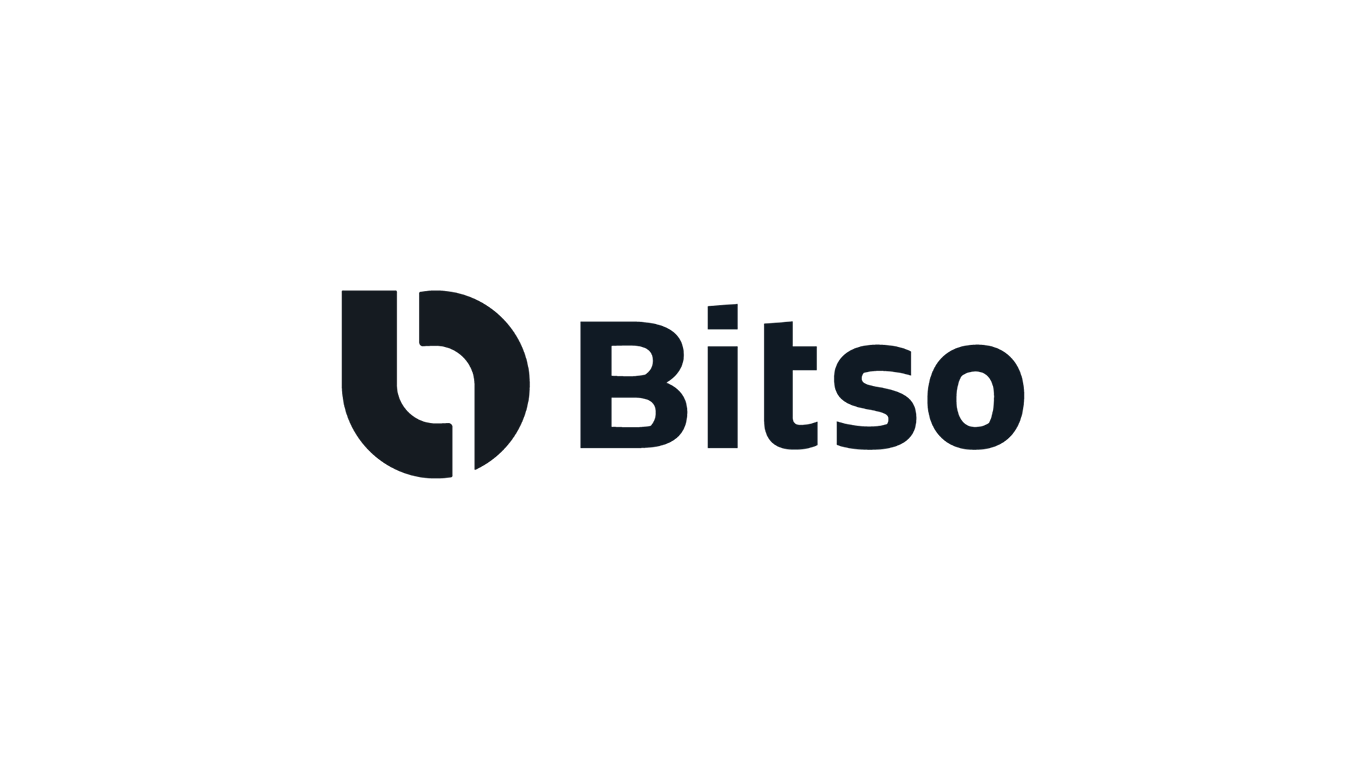
Bitso, the leading financial services company powered by crypto in Latin America, announced that during 2023 reached a 60% growth in its operation of the Bitso Business division, which reached an annualized volume of 8 billion dollars globally.
Over the past year, 1,700 institutional clients traded at least once a month through Bitso. Such organizations use Bitso payment rails and blockchain-based technology for mass pay-ins and pay-outs to employees and suppliers, cross-border payments, and other types of financial operations.
Among other results for 2023, there is also an increase in transactions for the corridor between USA and Mexico (one of the most important in the world and the largest in sending remittances), in which Bitso this year registered a volume of 4.3 billion of dollars, exceeding the 3.3 billion sent in 2022.
This growth has been made possible because during 2023 Bitso globally enabled International Payments, a set of services for transactions between countries. Last July, Bitso announced the integration with Stellar as anchor to enable new transaction corridors between Latin America and Europe, with a direct impact on the economic development and financial inclusion of companies. In addition, a few weeks ago it announced the new eFX with crypto service that allows businesses to carry out transactions with Brazil in stablecoins without the need for a local subsidiary and in compliance with local regulations.
“One of our goals at Bitso is to build the infrastructure for the future of money and open new opportunities for companies from around the world to do business in Latin America,” Santiago Alvarado, General Manager of Bitso Business, said. “We are very optimistic about the future of our institutional business, thanks to our regulatory strength, guaranteed liquidity and our connection with direct rails to the local financial systems of the countries where we operate. Because of this and in combination with the power of blockchain technology, we are confident that we will continue to consolidate in the region.”
Among its institutional clients, Bitso has companies from various sectors, including fintech businesses, payment processors, companies focused on sending remittances, as well as other crypto exchanges in the region.
In 2024, Bitso will continue to increase the offer of business services to serve more institutional clients and provide technological options that solve different financial needs and help drive the expansion of Latin American businesses and connect them with the rest of the world.

